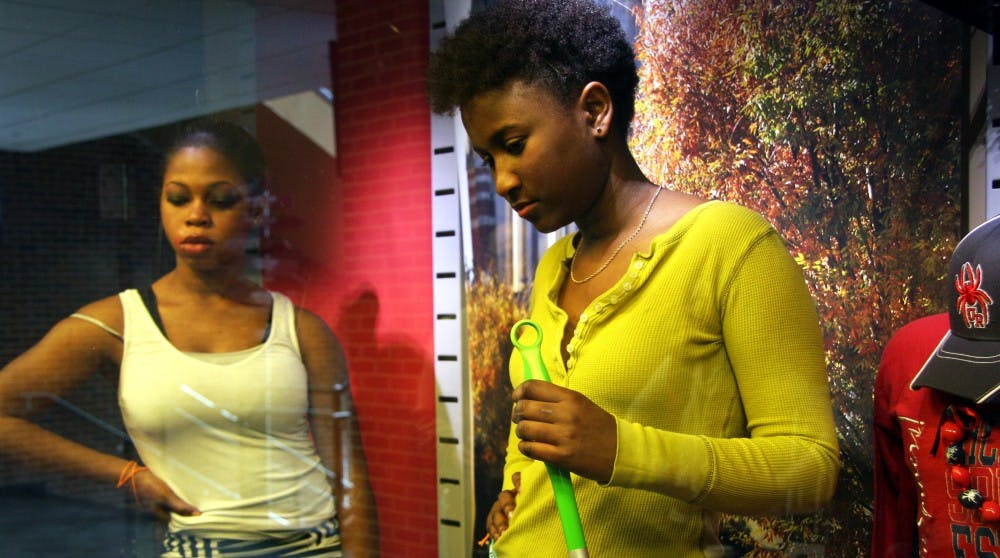Members of Students Stopping the Trafficking of People put live models in the UR bookstore windows last week to raise awareness about human trafficking.
The models, who were dressed as sex workers and domestic servants and wore signs that read "Human to go" and "Buy one, get one half-off," were meant to do more than serve as a shocking visual image, said sophomore Addie Rauschert, president of SSTOP.
"We wanted to move people beyond the level of awareness," she said. "We were trying to generate interest and encourage action."
Rauschert said she got the idea of using live models as attention-grabbers when she read an article about a group in Israel who had used a similar tactic. In doing so, members of the organization said they hoped to show students that modern-day slavery does exist and there are things they can do to help both on and off campus either through SSTOP or its partner, the Richmond Justice Initiative.
On some level, the group achieved its purpose, Rauschert said, but student reactions were very mixed. Some students saw the models and wanted to know more right away, but others remained unfazed and uninterested, she said.
Eric Rudofker, a UR senior, was one of the former.
"I jumped when I realized that it was a real person," he said. "There was one girl who was just staring at me. It was really bizarre."
The more interested students discovered that there was much to be learned about human trafficking.
"It's a $32 billion industry," said Celeste Reppond, a freshman who became involved with the group through friends. "That's more than the profit margins of Starbucks and Google combined."
In part, these financial statistics are at the heart of the problem, Reppond said. Because the industry circulates so much money, people are less keen on stopping it, she said.
Despite the fact that so much money is involved in human trafficking, hardly anybody knows about it, Reppond said. Members of SSTOP have taken it upon themselves to raise awareness about what has become one of the biggest global issues.
"It's horrible how true the movie 'Taken' is," Reppond said. "People think the girls being trafficked are the problem but there are no laws in place fighting the traffickers."
Enjoy what you're reading?
Signup for our newsletter
Contact reporter Liz Aqilino at liz.aquilino@richmond.edu
Support independent student media
You can make a tax-deductible donation by clicking the button below, which takes you to our secure PayPal account. The page is set up to receive contributions in whatever amount you designate. We look forward to using the money we raise to further our mission of providing honest and accurate information to students, faculty, staff, alumni and others in the general public.
Donate Now



